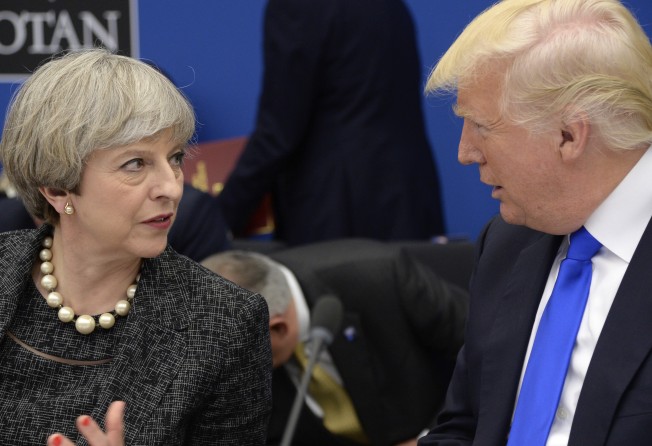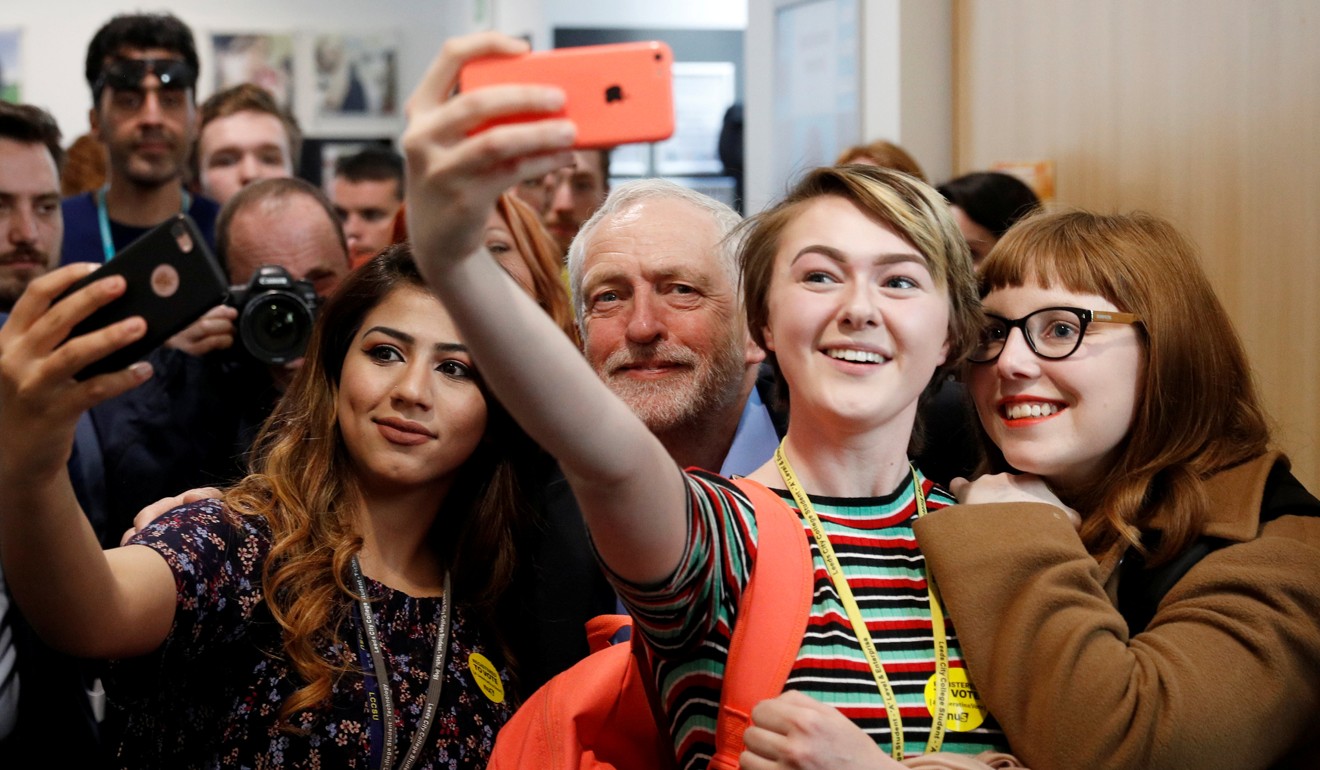Why Theresa May and Donald Trump are proof that populism is fool’s gold
Niall Ferguson says the backfiring of Theresa May’s snap-poll gamble and Donald Trump’s waning popularity, even in his core bases, show the magic of populist memes is always transient

We now know the half-life of populism: it’s 12 months. I think the idea nicely sums up what is happening not only in British politics but also in America.
Take yourself back just a year. Politics in mid-2016 was dominated by populist memes devised by the likes of Britain’s “Vote Leave” director Dominic Cummings and Donald Trump’s campaign chief Steve Bannon. “Take back control”; “We send the EU £350m a week. Let’s fund our NHS instead”;“BeLEAVE in Britain”; and, in the US: “Make America great again”; “Drain the swamp” and “Lock her up”.
Those slogans really worked. Political memes spread virally through British and American politics. People retweeted them, liked them on Facebook and talked about them in pubs. And then they voted: for Brexit in June; for Trump in November.
The political sugar rush of voting for the populist option was bound to wear off. The only question was when. The answer seems to be after about a year.
Consider what just happened in Britain. Theresa May decided she could get a bigger majority, and therefore strengthen her hand in the negotiations with Brussels, if she called an election. Her request to British voters on April 18 was clear. She accused the opposition parties of “jeopardising the work we must do to prepare for Brexit at home” and “weakening the government’s negotiating position” in Europe. “Every vote for the Conservatives”, she declared, “will make me stronger when I negotiate for Britain with ... the European Union.” The election was “necessary to secure the strong and stable leadership the country needs to see us through Brexit and beyond”.
Well, last Thursday the people spoke, and their message was essentially: “Nah.” A substantial number who last year voted for Brexit this year opted for Jeremy Corbyn. May asked for a mandate to negotiate an uncompromising Brexit, and she ended up losing the Tory majority in the Commons.

The essence of May’s strategy was to lure Labour voters who had voted “leave” last year to defect to the Tories. There is some evidence that it worked, in that Labour constituencies that voted “leave” last year swung towards the Tories last week. However, these effects were wholly negated by the surge of younger, healthier and better-educated voters to Labour.
As last year, age was a more significant factor in British politics than class or gender. The key reason the experts got it wrong was surely that they underestimated Corbyn’s appeal to the under-35s.
Most political commentators are old enough to remember the cold war, or the IRA’s campaign of terrorism. They know that, on every political issue of his own lifetime, Corbyn has been on the wrong side.
But all this is ancient history for young voters. To them, May was a deeply unsympathetic figure: a prim, humourless headmistress. Corbyn, by contrast, was the dissolute geography teacher who positively encourages youthful rebellion.
May wanted the election to be about Brexit. That strategy failed. The No 1 issue for Labour voters was not Brexit but the National Health Service; No 2 was spending cuts. Only 8 per cent of Labour voters said Brexit was the most important issue, compared with 48 per cent of Tory voters.
The number of Americans who strongly approve of Trump has dropped from a peak of 30 per cent to about 22 per cent
The bad news for Republicans is that a similar process of decay has now begun in America. As recently as late April, Trump would still have won a rerun of last November’s election. No longer.
The number of Americans who strongly approve of Trump has dropped from a peak of about 30 per cent in February to about 22 per cent now. Twice as many voters now strongly disapprove of him. Even his previously solid base of support is crumbling. A Gallup poll in May showed Trump’s approval had slumped in military communities, small-town rural counties and commuter communities beyond the suburbs. If this translates into Democrats winning the House in November 2018, impeachment is a near certainty.
So now we know. The magic memes of populist political alchemy can turn lead into gold – but only for about a year. Then it’s back to lead. And the half-life of a thwarted Conservative prime minister? That, my friends, is measurable in days.
Niall Ferguson is a senior fellow of the Hoover Institution, Stanford